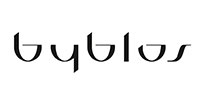Is Reading or Watching TV in Low Light Harmful?

Many of us were told as children that watching TV or doing our homework in a room with low light would ruin our eyesight.
But how true is this really?
Read on to find out!
Watching TV or using computers in the dark
People often seem to prefer watching television in the dark. The reason may be because darkening the room to watch it mimics a cinema experience, or adds to the mystery of an intriguing drama, or because it blocks out glare.
But whatever the reason, there is no evidence that watching television in the dark causes long-term damage to your eyes. According to a study by the Lighting Research Center (LRC) at Rensselaer Polytechnic in New York, watching TV in the dark can strain the eyes, but these effects are temporary. Once the experiment conducted by the LRC was over, the subjects’ eyes all returned to their normal state – no harm done.
That said, since watching TV in a darkened room can cause problems such as eye fatigue and discomfort, and possibly lead to dry eyes, it’s probably not a good idea to do it too often or for long periods.
Using your computer or mobile phone in the dark appears to be much like watching television too – the main problems to the eyes are eye strain, fatigue and discomfort. There is no evidence these things damage the eyes in any meaningful way, although they can be uncomfortable.
But what about blue light emitted from screens? Isn’t that harmful?
Blue light is a natural phenomenon that helps us to wake in the morning and stay alert during the day. So of itself it is not harmful at all – in fact it’s essential.
The problem is that when we look at screens at night it can interfere with our sleep patterns. This is particularly the case with mobile phones as we tend to use them very close up.
So while watching TV or using computers and phones in the dark won’t cause serious eye damage, it can have a range of effects that could impact health.
Reading in low light
There’s no evidence that reading in low light can damage your eyes. Reading in low light can strain the eyes though. Your eyes have to work harder to decipher the words, which can make them very tired. But once you put the book down, your eyes return to normal fairly quickly.
Tips for reducing eye strain
Using screens, watching television or reading in dim lighting won’t do any real eyesight damage, but it can strain your eyes.
Eye strain can lead to things like headaches, sore eyes, dry eyes and tiredness. Here are some ways to reduce it:
- Switch the light on – your eyes will probably breathe a sigh of relief and thank you for it!
- Take an eye break – look away from the screen and at something else in the room. Ideally, do this at least every 20 minutes for 30 seconds or so.
- Blink more – blinking helps reduce eye dryness or grittiness. We often tend to reduce our blinking while staring at a screen, so make a conscious effort to do it more often.
Check out our previous article for a bit more detail on reducing eye strain while using a computer. And if you are concerned about eye strain, or whether it’s time for new glasses, make an appointment with your eye doctor today!
Share on




















